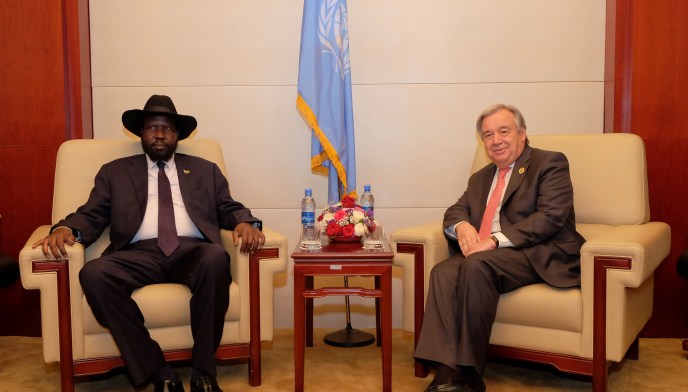Experts warn over placing S. Sudan under U.N trusteeship

February 5, 2017 (JUBA) – Several experts have cautioned over the proposal to place South Sudan under United Nations trusteeship, saying the young nation was not yet at the level that calls for international takeover.
The proposal to put under the U.N for an interim period gained momentum after the renewed clash broke out between the country’s warring factions in July 2016, which saw hundreds killed and nearly two million people displaced.
Placing South Sudan under the U.N trusteeship implied the world body will govern the country for a specific period before handing it back to its people.
This proposal came from ex-government officials, citing the worsening security.
Some government officials have, however, dismissed any possibilities of foreigners taking over the country, which gained its independence in July 2011.
“It is our right. It is our country. We fought for it. We achieved the independence through referendum. The people of South Sudan decided for their country. So nobody is better than the people of South Sudan,” South Sudan’s presidential spokesperson, Ateny Wek Ateny told Reuters in an interview.
“There are always minority voices that would hope for something totally different from what the majority of people of any given country say,” he added.
Uganda on, Thursday, rejected any move to militarily intervene in the war-torn nation, saying such interference will make the country’s security situation worse.
South Sudan broke into conflict in December 2013. The conflict has killed thousands of people and driven more than 2 million from their homes.
Currently, over 200,000 people are still sheltered in U.N camps in parts of the country.
In 2014, South Sudan President Salva Kiir accused the U.N of seeking to take over the country and speculated that is mission in South Sudan (UNMISS) may have pushed his political rival, Riek Machar, to rise up against the Juba government.
EXPERTS WARN OVER TRUSTEESHIP
Remember Miamingi, a South Africa-based law expert, argued that conditions in the young nation are not yet at the requisite level for International Transitional Administration (ITA), but backed calls for government of technocrats.
“Even though I believe that in some extreme cases of state failure ITA might be an appropriate remedy, I intend to argue here that South Sudan is not yet a very good case,” he told Xinhua.
Miamingi said international trusteeship succeeded only in countries like East Timo and Kosovo, where warring parties had reached mutually hurting stalemates, and with significant domestic constituencies that were willing to consent to ITAs.
“ITAs should more likely be considered only in the event that a territory contains a true vacuum of political authority; domestic political agents are fragmented to the extent that collective action via UN-facilitated power sharing is impossible; political actors are too violent or untrustworthy, or because they have violated foundational internal norms and covenants,” said Miamingi.
According to the law expert, ITAs for South Sudan should be the last resort for an extreme form of limited statehood.
“Other options should be tried first before frog jumping to the other extreme. One such alternative is a technocratic administration of South Sudanese with support where needed, from the international community,” he said.
He further added that such technocratic government could be responsible for overseeing the healing, reconciliation and accountability processes, ensuring political and security stability, and providing normative and institutional frameworks for successful transition.
Meanwhile, South Sudan’s former deputy defence minister Majak D’ said there was urgent need for roundtable conference outside Juba to bring all the country’s warring factions to chart a new road map for the war-ravaged nation.
“The first premise to restoring peace is to recognize that the peace agreement has been fractured and for peace to return a fresh break is needed,” he told Xinhua.
(ST)
